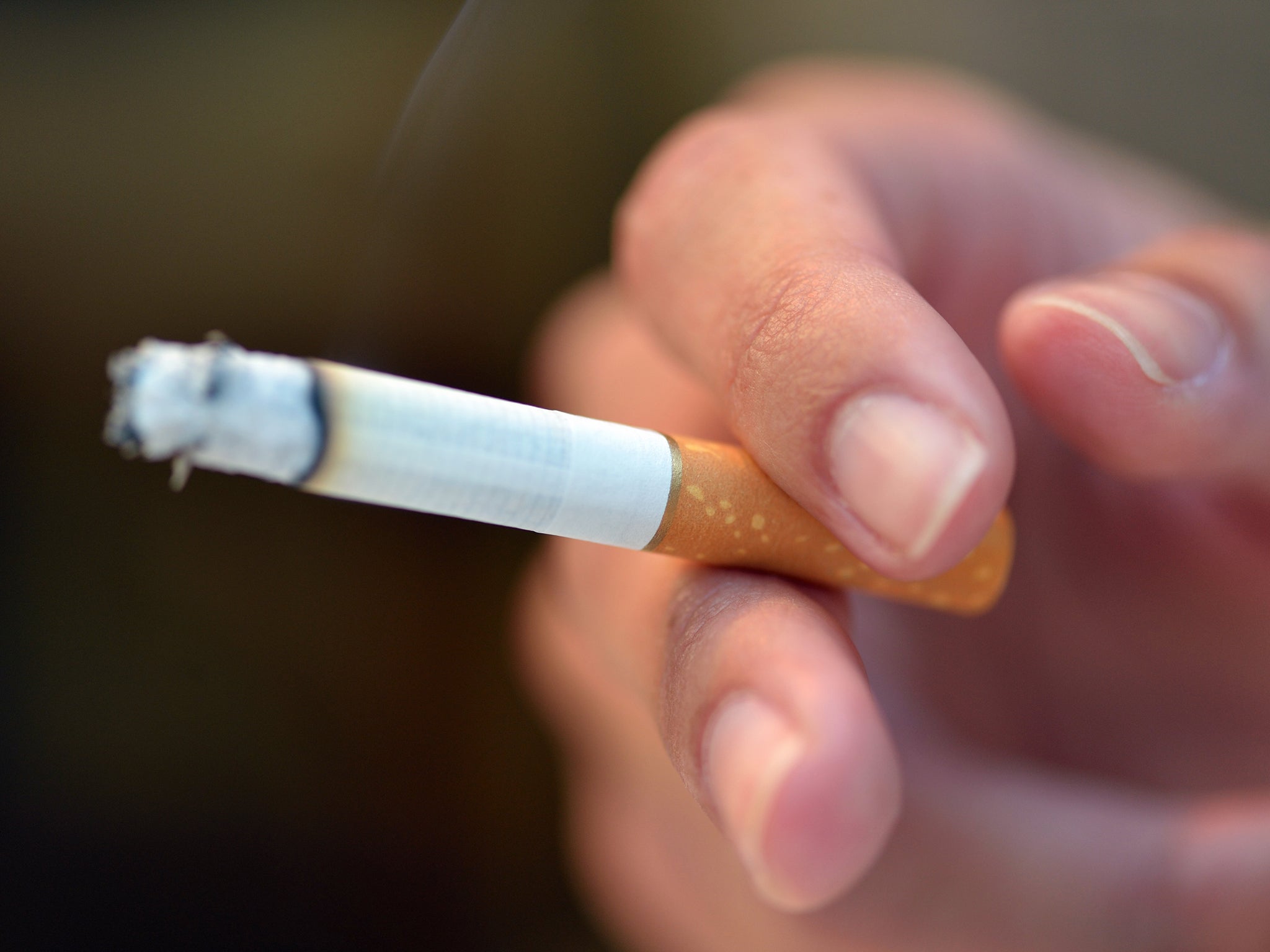Healthy living could have prevented half a million cancer cases over last five years
Quitting smoking would have had the biggest effect

Healthier lifestyles could have prevented almost 600,000 cases of cancer in the UK over the last five years, according to a report out today.
New figures from Cancer Research UK indicate four out of 10 cases could have been avoided if people had made lifestyle changes.
Giving up smoking would have had the biggest impact on reducing cancer - leading to more than 314,000 fewer cases since 2009.
However, a further 145,000 cases could have been prevented if people had adopted a balanced diet low in red and processed meat and salt and high in vegetables.
In addition, maintaining a healthy weight could have prevented a further 88,000 cases, while thousands more were linked to excess alcohol, failing to protect skin from the sun and lack of exercise.
“There’s now little doubt that certain lifestyle choices can have a big impact on cancer risk with research around the world all pointing to the same key risk factors,” said Professor Max Parkin, from Queen Mary, University of London, who provided the statistical evidence for the report.
“Of course everyone enjoys some extra treats during the Christmas holidays so we don’t want to ban mince pies and wine, but it’s a good time to think about taking up some healthy habits for 2015."
“Leading a healthy lifestyle can’t guarantee someone won’t get cancer but we can stack the odds in our favour by taking positive steps now that will help decrease our cancer risk in future,” Professor Linda Bauld, Cancer Research UK’s expert on cancer prevention, added: “There are more than 200 types of cancer, each caused by a complex set of factors involving both our genes and our lifestyles.
“There are proven ways to minimise our risk of cancer, like giving up smoking, being more active, drinking less alcohol and maintaining a healthy weight. We must make sure the public and the policy-makers know the evidence behind the benefits of these lifestyle changes is solid.”
Justine Sheils, aged 43, from Liverpool, who has had five cancerous moles removed after regularly using sunbeds in her youth, said: “We didn’t know about the dangers of sunbathing when I was in my teens and twenties - or at least I didn’t want to know.
“I sunbathed on holiday and then used sunbeds to keep my tan topped up all year around which was the fashion in those days. It wasn’t until I noticed a suspicious-looking mole on my chest that I really thought about the risks I was taking.
“Being diagnosed with malignant melanoma gave me on heck of a wake-up call. I’ve had surgery five times now to remove various moles and I go for check-ups every few months.
“It’s been a truly horrible experience but it did make me think about how I need to overhaul my lifestyle - so I’ve taken up running, I make sure I’m eating a healthy diet and getting my five fruit and vegetables every day and I’ve cut back on alcohol.”
Harpal Kumar, chief executive Of Cancer Research UK, added: “We know that cutting UK smoking rates by just one per cent could save 3,000 lives a year. But changing habits isn’t easy.”
Top tips for avoiding cancer
- Stopping smoking would have prevented 314,000 cases of cancer in the past five years.
- Adopting a diet low in red and processed meat and salt and high in vegetables would result in 145,000 fewer cases.
- Keeping a healthy weight through exercise is worth 88,000 fewer cases.
- Reducing alcohol intake and protecting your skin from the sun means tens of thousands fewer cases.
Subscribe to Independent Premium to bookmark this article
Want to bookmark your favourite articles and stories to read or reference later? Start your Independent Premium subscription today.

Join our commenting forum
Join thought-provoking conversations, follow other Independent readers and see their replies